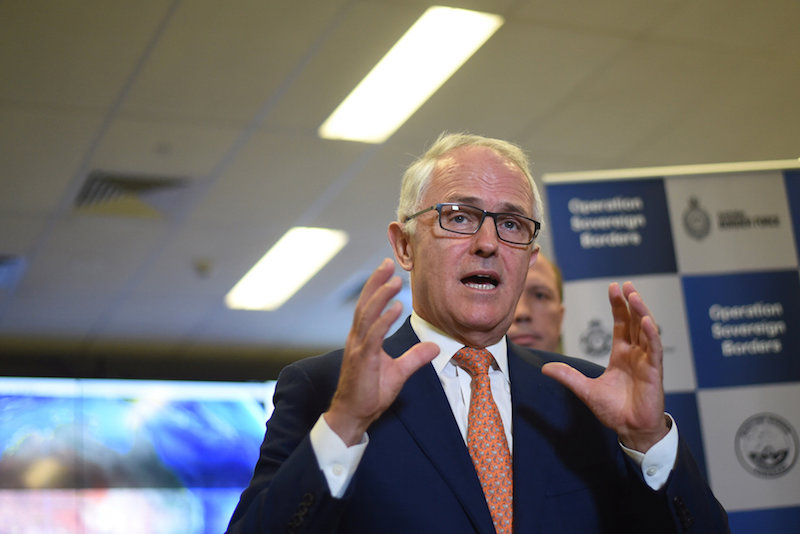Immigration department officials say they know nothing about a deal Australia announced on Sunday to send the refugees it is holding offshore to the U.S., throwing the future of Cambodia’s own multimillion-dollar deal with Australia for some of the same refugees into doubt.
Of the hundreds of refugees being held on Nauru, caught at sea trying to reach Australian shores, only six have arrived in Cambodia since Phnom Penh inked a deal with Canberra to resettle them on a voluntary basis, in return for an extra $30.2 million in aid over the next four years. Four of the six have since opted to return to their home countries.

Refusing to resettle the refugees itself, and struggling to get them off its hands, Australia has been searching for another third country to take them in. On Sunday, Australian Prime Minister Malcolm Turnbull announced that a deal had been reached with the U.S.
“I can now confirm that the government has reached a further third-country resettlement arrangement for refugees presently in the regional processing centers,” Mr. Turnbull said at a press conference aired by the Australian Broadcast Corporation.
“The arrangement is with the United States. It is a one-off agreement. It will not be repeated. It is only available to those currently in the regional processing centers. It will not be available to any persons who seek to reach Australia in the future.”
The deal covers Australia’s centers on both Nauru and Papua New Guinea’s Manus island, with priority for women, children and families on Nauru.
U.S. Secretary of State John Kerry confirmed the deal, according to Australian media reports. Speaking from New Zealand on Sunday, Mr. Kerry said the U.S. has “agreed to consider referrals from UNHCR [U.N. High Commissioner for Refugees] on refugees now residing in Nauru and in Papua New Guinea.”
Cambodian officials said they knew nothing about the new arrangement with the U.S.
News of it took the head of the Interior Ministry’s immigration department, Sok Phal, by surprise.
“To the U.S.A.? I [do] not yet know,” he said. “Australia did not inform us officially.”
Though unaware, he welcomed the news and said it could mean the end to Cambodia’s deal, or memorandum of understanding (MoU), with Australia.
“I think [it’s] good for us…. So maybe the MoU is finished; I say maybe,” he said. “The refugees want to live in a developed country, so if they can go to the U.S. it is good for them.”
General Phal also claimed to know nothing about the $30.2 million that Australia attached to the MoU, and declined to comment on its fate should the U.S. replace Cambodia as the refugees’ new destination. In December, the Australian Embassy in Phnom Penh said that about $3.9 million of that money had been delivered to date.
The immigration department’s refugee bureau chief, Tan Sovichea, and head of administration, Kerm Sarin, also said they knew nothing about Australia’s deal with the U.S.
During their announcement yesterday, Australian officials made no mention of Cambodia. Immigration Minister Peter Dutton laid out three options—none of them involving Cambodia—for the refugees currently on Nauru: the U.S., their home countries or a 20-year visa to stay on Nauru.
Mr. Turnbull gave no timeline, estimate of how many refugees might make it to the U.S. or whether the arrangement would survive the coming administration of President-elect Donald Trump, who campaigned on a platform hostile to would-be Muslim immigrants. Many of the refugees on Nauru come from majority Muslim countries.
The Refugee Action Coalition, an Australian advocacy group highly critical of the country’s deal with Cambodia, said the new arrangement with the U.S. could serve the refugees much better—if it lasts.
“There is of course a question mark about whether the Trump administration will honor any deal to resettle refugees from Australia,” coalition spokesman Ian Rintoul said in an email.
“However, unlike Cambodia, the United States is a rich country, has a well-established and well-resourced refugee resettlement program. Refugees resettled in the U.S.A. can expect to be able to live securely.”
(Additional reporting by Kang Sothear)



